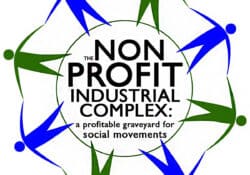
BCFS and FirstDay Foundation Network—A Financial and Political Powerhouse Operating as a Nonprofit
by The Constitutional Republic | Feb 06, 2025
The network surrounding BCFS Health and Human Services—formerly Baptist Child & Family Services, now rebranded under the FirstDay Foundation umbrella—has transformed from a faith-based charity into one of the most politically and financially entrenched NGO networks in the United States.
On the surface, BCFS presents itself as a humanitarian nonprofit, operating in foster care, emergency shelter services, disaster response, and migrant youth housing. However, behind the scenes, it has accumulated staggering levels of government funding, built an elaborate financial ecosystem, and wielded significant influence over policy and contract decisions.
Structure and Alliances: A Financially Engineered Network for Influence and Control
Over the past two decades, BCFS evolved from a small nonprofit into a web of interconnected entities, each strategically designed to control government contracts, move funds internally, and minimize external oversight.
In 2022, BCFS completed a major corporate-style restructuring, establishing FirstDay Foundation as the parent entity. This move placed a financial firewall between BCFS’s operations and its decision-making, creating a centralized control hub for the network.
FirstDay Foundation: A Holding Company Disguised as a Nonprofit
A legislative audit confirmed that FirstDay Foundation operates as the financial and administrative command center for BCFS, functioning more like a private-sector holding company than a traditional charity.
Although FirstDay claims to be a philanthropic grant-making institution, in practice, it controls every major financial and operational decision within its network, ensuring that government contracts and federal funds remain under its control.
A Complex Web of Interconnected Subsidiaries
The FirstDay/BCFS network consists of multiple operational arms, each designed to handle different streams of government funding while maintaining the illusion of independent oversight:
- BCFS Health and Human Services (BCFS HHS): The primary operational arm responsible for domestic shelter operations, foster care, and unaccompanied minor housing programs.
- Emergency Management Division: A government contractor focused on disaster response, monetizing national crises like hurricanes, wildfires, and pandemics.
- International Arms (Children’s Emergency Relief International – CERI): A subsidiary that expands BCFS’s reach abroad, providing additional layers for financial maneuvering beyond U.S. regulations.
- Compass Connections & Compass United:
- Compass Connections, a 501(c)(3) nonprofit, provides shelter and services for vulnerable children, including migrant youth housed in government-funded facilities. It also operates a national call center in partnership with HHS, centralizing intake and management of unaccompanied minors.
- Compass United, described as a federal partner for a national call center, is likely an internal extension of Compass Connections, further consolidating government contracts under BCFS control.
Even though these entities appear independent, their infrastructure, funding sources, and leadership are deeply intertwined, reinforcing the idea that BCFS operates more like a conglomerate than a traditional nonprofit.
Financial Growth and Internal Transactions: A Closed-Circuit System
BCFS (through FirstDay Foundation) has established at least nine affiliated nonprofits, each serving a specialized role in managing government contracts, handling different funding streams, and compartmentalizing financial risk.
This structure allows FirstDay to move funds between subsidiaries without external scrutiny, using tactics such as:
- Internal grants and service fees: FirstDay contributes millions to BCFS HHS, but also charges its own subsidiaries for rent, administrative services, and other expenses, keeping revenue circulating within its own ecosystem.
- Government contract layering: If a government grant is awarded to one entity, FirstDay can reallocate funds internally, ensuring unspent federal dollars stay within its network instead of being returned or reassigned to external organizations.
The financial trajectory of BCFS/FirstDay is staggering:
- In 2011, BCFS had just $10 million in net assets.
- By 2022, FirstDay Foundation’s net assets had ballooned to $788.7 million.
- This explosion in assets was driven almost entirely by government contracts and grants, making BCFS one of the largest federally funded NGOs in the United States.
- HHS Grants for Unaccompanied Minors: $3.1 billion in federal funding allocated to BCFS as a key service provider.
- FEMA Grants for COVID Testing/Vaccination: $7.2 billion in emergency pandemic-related funds managed in part by BCFS.
Because BCFS operates as the intermediary rather than the direct service provider, it has repeatedly retained excess funds or administrative fees, leading to ballooning reserves that rival private-sector corporations.
A damning analysis by American Thinker described FirstDay’s massive financial reserves as “resembling a slush fund”, due to the lack of transparency regarding how—or if—these funds were being used for their intended purpose.
Meanwhile, FirstDay openly boasts about its growing financial war chest:
- More than $900 million in assets
- A $700 million investment fund to generate future grant earnings
Political Influence and Lobbying: Controlling the Policy Landscape
The BCFS/FirstDay network does not merely receive government funds—it actively shapes policy to ensure those funds keep flowing.
In recent years, FirstDay has spent at least $2.8 million on federal lobbying efforts, a figure that raises serious ethical concerns given that much of its revenue originates from taxpayer-funded grants.
For context, even much larger nonprofits like the American Red Cross spend far less on lobbying.
This lobbying is directed at:
- Influencing ORR (Office of Refugee Resettlement) appropriations, ensuring continued funding for migrant shelter contracts.
- Shaping disaster response legislation, reinforcing BCFS’s position as a preferred FEMA contractor.
- Controlling federal licensing and regulatory frameworks, preventing oversight measures that could expose financial irregularities.
By positioning itself as a key player across multiple policy sectors, BCFS ensures that no matter how political winds shift, federal contracts continue flowing into its network.
Leadership and Strategic Positioning: A Nonprofit in Name, a Corporation in Practice
BCFS’s governance is structured to prevent internal dissent and maintain absolute control.
- Kevin Dinnin has held dual roles as CEO and board chairman, ensuring all major financial and operational decisions remain in the hands of a tightly controlled leadership circle.
- Board members of BCFS and its subsidiaries often overlap, reinforcing centralized control and eliminating independent oversight.
- BCFS leadership maintains a presence in local boards and industry conferences, ensuring deep political and business connections that help secure contracts and regulatory favors.
This strategic positioning enables BCFS to operate more like a corporate empire than a charitable organization, ensuring its influence remains firmly intact even as regulatory scrutiny increases.
Rebranding and Public Perception: Escaping Past Controversies
BCFS’s 2022 rebrand to FirstDay Foundation was a calculated move—one designed to shift the organization’s image away from its government contractor identity and present it as a prestigious grant-making institution.
- The shift distances FirstDay from past controversies surrounding its financial reserves, executive pay, and contract handling.
- The branding allows it to maintain different identities for different audiences:
- To government agencies, it remains BCFS Health and Human Services, a critical service provider.
- To the public and philanthropists, it presents itself as FirstDay Foundation, an independent foundation managing a massive investment fund.
By carefully controlling its narrative, BCFS/FirstDay minimizes public scrutiny while preserving its financial and political dominance.
Subscribe to The Constitutional Republic
References:
Case Study: BCFS and FirstDay Foundation Network
- BCFS Health and Human Services – Government Grants Overview: www.usaspending.gov/recipient/4f3a29c1-92c5-435e-84d3-e61fba2f74c5
- FirstDay Foundation Structure and Financials: www.firstdayfoundation.org/
- BCFS Handling of Migrant Child Shelters and Political Influence: www.washingtonpost.com/investigations/2022/06/19/bcfs-migrant-shelters/
- Texas Attorney General Investigations into BCFS/FirstDay Financial Practices: www.texasattorneygeneral.gov/news/releases/2023/bcfs-firstday-foundation
- FEMA Contracts and BCFS COVID-19 Response Controversy: www.oig.dhs.gov/sites/default/files/assets/2023/BCFS-COVID-19-Audit.pdf
- CEO Kevin Dinnin Compensation and Influence Network: www.sanantonioexpressnews.com/news/local/article/kevin-dinnin-bcfs-salary-lobbying-18293002.php







0 Comments